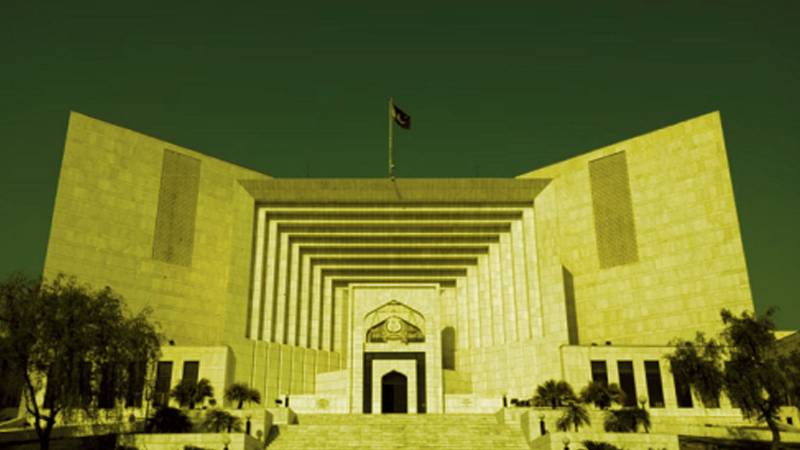
The Supreme Court of Pakistan on Thursday annulled its 2022 ruling regarding Article 63(A) of the Constitution, which prohibited lawmakers from voting against party directives in parliament. A five-member bench, led by Chief Justice Qazi Faez Isa, announced a unanimous verdict approving a review petition filed by the Supreme Court Bar Association (SCBA).
The case pertains to the top court's earlier decision that deemed votes from parliamentarians who strayed from their party's instructions as invalid. During Thursday's hearing, Pakistan Tehreek-e-Insaf (PTI) lawyer Barrister Ali Zafar informed the court of a meeting he had with the party's founder, Imran Khan, but their attorney-client privilege was violated due to the presence of police officers during the meeting.
Zafar also noted that the imprisoned former prime minister Imran Khan had expressed a desire to address the court personally via a virtual appearance. He reiterated the PTI's stance against the bench hearing the case, claiming that it had been improperly constituted. He, however, concluded his arguments by stating that the party wished to withdraw from the proceedings.
The CJP expressed frustration at Zafar's repeated references to Imran Khan, urging him to avoid naming individuals. The chief justice warned Zafar that his comments suggesting potential bias of the court could lead to contempt of court charges.
Later, the chief justice inquired if Zafar would be willing to serve as an amicus curiae and assist the court on legal questions, to which Zafar agreed. Following the SCBA President's endorsement, the court officially appointed Zafar as amicus curiae, allowing him to continue his arguments.
Supreme Court verdict corrects past mistake
Hafiz Ehsaan Ahmad, an advocate registered to practice in the Supreme Court, stated that there is no doubt that the legal proposition that the Supreme Court can review whether laws or amendments comply with fundamental rights guaranteed under the overarching constitutional structure. Ahmad said the court, however, cannot initiate or rewrite the Constitution, adding that only the Parliament reserves the power to make formal changes to the Constitution.
He further stated that the previous verdict of the Supreme Court on Article 63-A of the Constitution was clearly against the mandate and jurisdiction granted under Article 175(2) of the Constitution. The issue, he believed, has finally been corrected by the top court.
Through its previous judgment, he said that the top court had exceeded its jurisdiction as the Supreme Court only has the power to interpret the Constitution and law but not to rewrite or read into the Constitution.
He further explained that there was near unanimity in the present verdict on the point that the earlier judgment on Article 63-A was not in accordance with the constitutional scheme, and thus was not legally maintainable.
He further stated that no argument had been presented before the court in favour of the previous judgment; rather, the stress was always on questioning the constitution of the bench.
Legal experts believed that given the amendments made to the Practice and Procedure Act through the Presidential ordinance in September, the bench was rightly and legally constituted; hence, questions raised on the constitution of the bench were not maintainable.
Hafiz Ehsaan Ahmad concluded that the Supreme Court had realised the limitations of its jurisdiction and attempted to legally rectify a past overreach by recalling its earlier judgment and correctly upholding the plain language and scheme of Article 63-A of the Constitution that votes cast in any situation will be counted and defection, as a consequence of casting that vote, will follow later.

